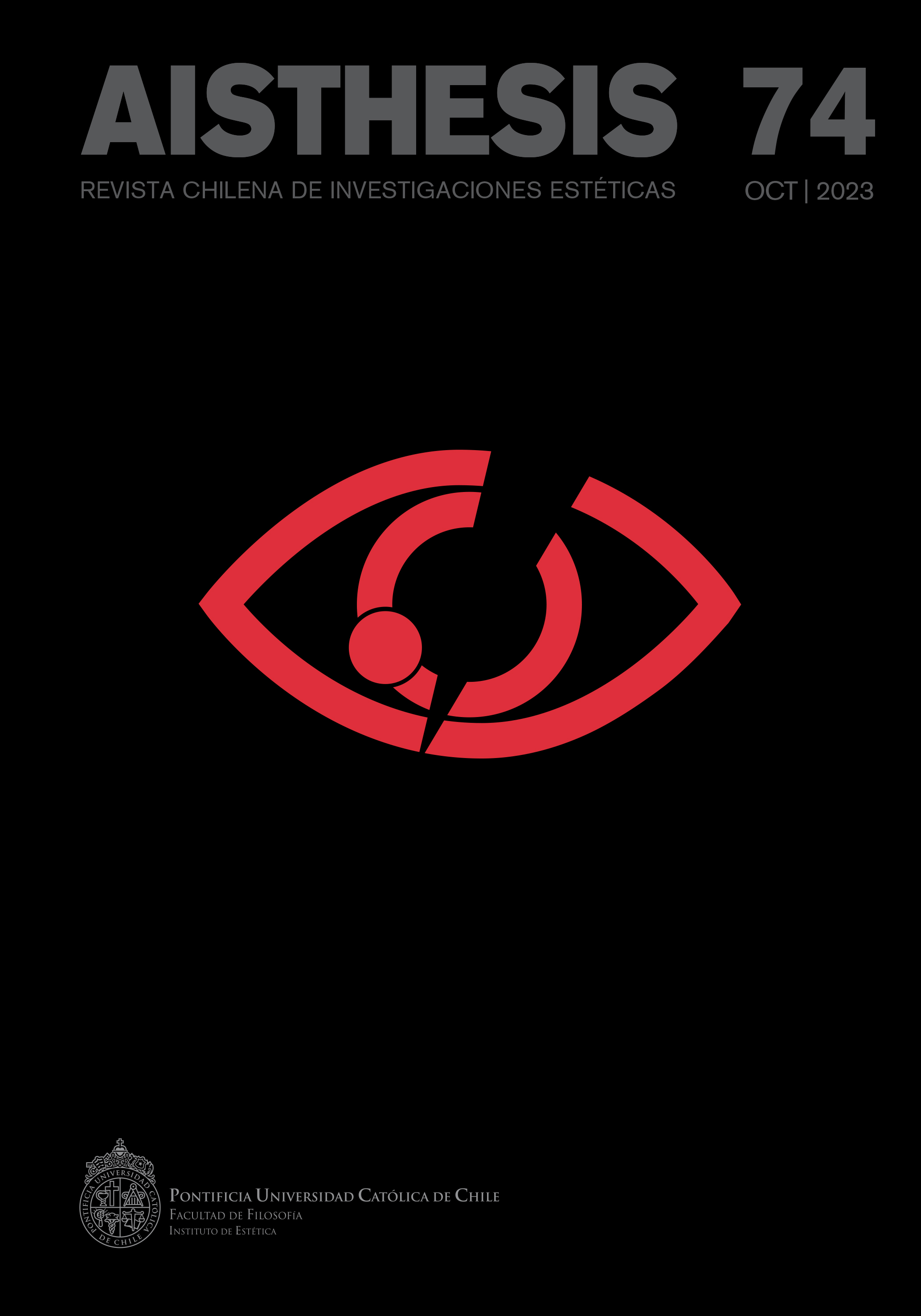«Museification» of the political community in Boris Groys: Iconoclasm, aesthetic technology of care and critique of neoliberalism
Main Article Content
Abstract
Groys' aesthetic thought encourages the approach of the critique of neoliberalism from a point of view that is alien to the modern question of the subject. As opposed to the hegemony of the neoliberal subject identified with the entrepreneur of the self from a Foucauldian perspective, Groys shows that the iconoclasm followed by avant-garde art and museums offers an alternative: the conception of the individual as a "work of art", that is to say, as a dysfunctionalised "object", valuable in itself or independent of their job and social function. This alternative is completed with the retrieval of the main proposal of cosmist thought: the transformation of museum technology into biopolitics so that the individual of our time becomes an object of permanent care. Finally, the power and limits of the aesthetic-political metaphor of "museification" is analysed in order to think of an effective democratic alternative to neoliberalism.
Downloads
Article Details

This work is licensed under a Creative Commons Attribution-NonCommercial-ShareAlike 4.0 International License.
All contents of this electronic edition are distributed under the Creative Commons license of "Attribución-shareAlike 4.0 Internacional" (CC-BY-SA). Any total or partial reproduction of the material must mention its origin.
The rights of academic works published in this publication belong to their authors., who grant to AISTHESIS: Revista Chilena de Investigaciones Estéticas the license for its use. The management of the permits and the authorization of the publication of the images (or of any material) that contains copyright and its consequent rights of reproduction in this publication is the sole responsibility of the authors of the articles
References
Referencias
Araquistáin, Luis. El archipiélago maravilloso seguido de Ucronía. La Biblioteca del Laberinto, 2011.
Benedetti, Carla. La letteratura ci salverà dall’estinzione. Einaudi, 2021.
Blumenberg, Hans. «Una aproximación antropológica a la actualidad de la retórica». Las realidades en que vivimos. Paidós, 1999.
––. Descripción del ser humano. Fondo de Cultura Económica, 2011.
Brown, Wendy. El pueblo sin atributos. La secreta revolución del neoliberalismo. Malpaso, 2016.
Brunton, Finn y Helen Nissenbaum. Obfuscation. C&F, 2019.
Carson, Anne. Decreación. Vaso Roto, 2020.
Crimp, Douglas. «Sobre las ruinas del museo». La posmodernidad. Ed. H. Foster. Kairós, 2010.
Deleuze, Gilles y Félix Guattari. Mil mesetas. Capitalismo y esquizofrenia. Pre-Textos, 2020.
Febvre, Lucien. Le probleme de l’incroyance au XVIe siecle. La religion de Rabelais. Albin Michel, 1942.
Foucault, Michel. «Des espaces autres». Architecture, Mouvement, Continuité, nº 5, 1984, pp. 46-49.
––. Nacimiento de la biopolítica. Fondo de Cultura Económica, 2007.
Gracián, Baltasar. El Discreto. Planeta, 1996.
Greenberg, Clement. «Vanguardia y kitsch». Arte y cultura. Ensayos críticos. Paidós, 2002, pp. 15-33.
Groys, Boris. Art Power. Postmedia, 2012.
––. «La iconoclastia como procedimiento: estrategias iconoclastas en el cine». Iconoclastia. La ambivalencia de la mirada, VV. AA. La Oficina, 2012.
––. Volverse público. Las transformaciones del arte en el ágora contemporánea. Caja Negra, 2014.
––. Arte en flujo. Ensayos sobre la evanescencia del presente. Caja Negra, 2016.
––. (comp.) Cosmismo ruso. Tecnologías de la inmortalidad antes y después de la Revolución de octubre. Caja Negra, 2021.
––. La lógica de la colección y otros ensayos. Arcadia, 2021.
––. Filosofía del cuidado. Caja Negra, 2022.
––. Devenir obra de arte. Caja Negra, 2023.
Gumbrecht, Hans Ulrich. Lento presente. Sintomatología del nuevo tiempo histórico. Escolar y Mayo, 2010.
––. Después de 1945. La latencia como origen del presente. Universidad Iberoamericana, 2015.
Harcourt, Bernard E. La société d’exposition. Désir et désobéissance à l’ère numérique. Seuil, 2020.
Jimenez, Marc. Qu’est-ce que l’esthétique? Gallimard, 1997.
Jünger, Ernst. El trabajador. Dominio y figura. Tusquets, 2003.
Kojève, Alexandre. Introducción a la lectura de Hegel. Trotta, 2013.
Kracauer, Siegfried. «La fotografía». Estética sin territorio. Colegio de Arquitectos, 2006.
Krauss, Rosalind. Le Photographique. Pour une Théorie des Écarts. Éditions Macula, 2013.
Lasch, Christian. La cultura del narcisismo. La vida en una era de expectativas decrecientes. Capitán Swing, 2023.
Lazzarato, Maurizio. La fábrica del hombre endeudado. Ensayo sobre la condición neoliberal. Amorrortu, 2013.
––. Marcel Duchamp y el rechazo del trabajo seguido de Miseria de la sociología. Casus Belli, 2015.
Löwith, Karl. El hombre en el centro de la historia. Balance filosófico del siglo xx. Herder, 1998.
Lyotard, Jean-François. Lo inhumano. Charlas sobre el tiempo. Manantial, 1998.
Martino, Ernesto de. La fine del mondo. Contributo all’analisi delle apocalissi cultural. Einaudi, 2002.
Merleau-Ponty, Maurice. Lo visible y lo invisible. Nueva Visión, 2010.
Milner, Jean-Claude. La política de las cosas. Miguel Gómez Ediciones, 2007.
Mondzain, Marie-José. Image, icône, économie. Les sources byzantines de l’imaginaire contemporain. Seuil, 1996.
––. Le commerce des regards. Seuil, 2003.
Nancy, Jean-Luc. La comunidad desobrada. Arena Libros, 2001.
Ortega y Gasset, José. «El tema de nuestro tiempo». Obras Completas 3. Alianza Editorial-Revista de Occidente, 1983.
––. «La deshumanización del arte». Obras Completas 3, Alianza Editorial-Revista de Occidente, 1983.
Pasolini, Pier Paolo. Empirismo Eretico. Garzanti, 2019.
Perniola, Mario. Enigmas. Egipcio, barroco y neo-barroco en la sociedad y el arte. Cendeac, 2006.
Rancière, Jacques. «Schiller y la promesa estética». Trad. Víctor Cases. Schiller, arte y política. Ed. Antonio Rivera García. Editum, 2010, pp. 91-107.
Sartre, Jean-Paul. El ser y la nada. Ensayo de ontología fenomenológica. Iberoamericana, 1946.
Stiegler, Barbara. «Il faut s’adapter». Sur un nouvel impératif politique. Gallimard, 2019.
Valls Boix, Juan Evaristo. La metafísica de la pereza. Ned, 2022.
Zambrano, María. Persona y democracia. La historia sacrificial. Anthropos, 1988.
